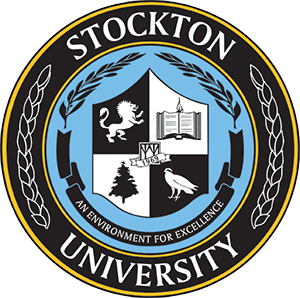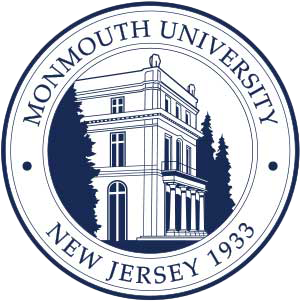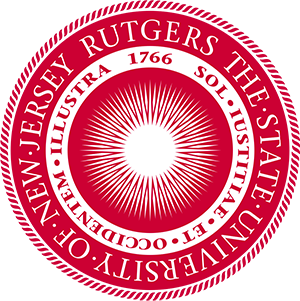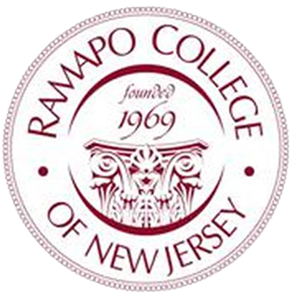Climate Change Learning Collaborative

Professional Learning in Climate Change for K-12 Educators
Stockton University is pleased to announce the establishment of a new regional center funded by the New Jersey Department of Education. The Climate Change Learning Collaborative (CCLC) will help prepare and support K-12 educators as they implement the NJ Student Learning Standards in Climate Change.
The overarching goals and expectations of this program are to:
- Further increase the number and content-area diversity of New Jersey K-12 public school educators prepared to teach high quality, standards-based climate change education.
- Continue to build out a statewide network to assist local education agencies (LEAs) in implementing the NJSLS supporting climate change education through the existing regional (northern, central, southern) Climate Change Learning Collaboratives (CCLCs) at New Jersey institutes of higher education (IHEs), with the support of community-based nonprofit organizations (CBOs) engaged in place-based environmental education.
Led by a team that includes faculty and staff from the School of Education, including its SRI&ETTC, and faculty from the School of Natural Sciences and Mathematics, and the School of Arts and Humanities, the Climate Change Learning Collaboration (CCLC) will provide professional learning opportunities, provided by Stockton faculty as well as community-based organizations and agencies that are currently participating in climate-based programming and advocacy. K-12 teachers will learn to develop, deliver, and assess high-quality lesson plans for their students that incorporate experiential experiences and activities for their students across interdisciplinary curriculum areas.
The CCLC at Stockton University serves the following New Jersey counties: Atlantic, Burlington, Camden, Cape May, Cumberland, Gloucester, Ocean, and Salem.
This project is directed by Dr. Kimberly Lebak, Professor of Education, and Ms. Patty Weeks, Director of the Southern Regional Institute and ETTC (SRI&ETTC) at Stockton University.
The Stockton University Climate Change Learning Collaborative is funded by a grant from the New Jersey Department of Education. This material and any opinions, results, conclusions, or recommendations expressed within are those of the author(s) and do not necessarily represent the views of the New Jersey Department of Education nor constitute an endorsement thereof.
New Registration Platform for Grant Workshops
We’re excited to announce the launch of our new registration platform for grant workshops! This new system is designed to make the sign-up process smoother and more efficient.
Please note:
- You must register for each workshop separately.
- Workshops have limited seats
- Pre-registration and approval are required
- Seats are prioritized for the hub’s regional partners and LEAs with grants from the New Jersey Department of Education
If you have any questions or need assistance, feel free to contact us at ettc@stockton.edu.
Thank you,
The Stockton ETTC Team
 The project will draw upon the unique environmental location of Stockton University.
Stockton University's main campus is located in the Pinelands National Reserves while
Stockton University's Atlantic City campus is located on the Atlantic coastline.
The Pinelands National Reserves makes up approximately one million acres, or 20% of
New Jersey's land area. The Pine Barrens is a rare ecosystem that is home to 43 threatened
or endangered animal species and 92 threatened or endangered plant species. The Atlantic
coastline includes a wide range of ecosystems including marshes, wetlands, and beaches
and is home to many kinds of plants and animals. The coastal wetlands provide valuable
nursery, feeding, breeding, staging, and resting areas for many fish, shellfish, mammals,
and birds. The environmental challenges and impact of climate change on our unique
community ecosystems have been well documented and will provide the foundation for
the proposed project.
The project will draw upon the unique environmental location of Stockton University.
Stockton University's main campus is located in the Pinelands National Reserves while
Stockton University's Atlantic City campus is located on the Atlantic coastline.
The Pinelands National Reserves makes up approximately one million acres, or 20% of
New Jersey's land area. The Pine Barrens is a rare ecosystem that is home to 43 threatened
or endangered animal species and 92 threatened or endangered plant species. The Atlantic
coastline includes a wide range of ecosystems including marshes, wetlands, and beaches
and is home to many kinds of plants and animals. The coastal wetlands provide valuable
nursery, feeding, breeding, staging, and resting areas for many fish, shellfish, mammals,
and birds. The environmental challenges and impact of climate change on our unique
community ecosystems have been well documented and will provide the foundation for
the proposed project.
For more information and resources visit the NJDOE Climate Change Page
K-12 educators will be able to choose from six core PD workshops
These will be offered multiple times throughout the next 10 months.
Please note that you must register for each workshop separately. Please contact climatelearning@stockton.edu if you need any assistance.
| Core 1 |
Understanding Climate Change: |
| Core 2 |
Climate Change and Our Community: |
| Core 3 |
Climate Change and Our Community: |
| Core 4 | Designing Interdisciplinary PBL Units Aligned to NJSLS in Climate Change: Development and assessment of high-quality interdisciplinary curriculum materials that can be taught in the K-12 classroom conducted in two groups - elementary, and middle/secondary which will be further separated by grade-band groupings. |
| Core 5 | Teaching Interdisciplinary PBL Units on Climate Change Aligned to NJSLS and Incorporating
Experiential Learning: Implementation of interdisciplinary project-based units of study and experiential learning experiences. Workshops will be grade level specific and will have an interdisciplinary focus for all content areas. |
| Core 6 |
Choosing and Evaluating High Quality Resources: |
CORE workshops will be supplemented with programming offered by our community-based partners including:

- Wetlands Institute
- Save Barnegat Bay
- NJ Audubon
- Center for Aquatic Sciences
- Sustainable NJ
All programming at Stockton’s CCLC is available at no cost to teachers and administrators from New Jersey public schools. However, pre-registration is required.
* Workshops will be repeated throughout the school year and will also be available online.
Climate Change Learning Collaborative Websites










